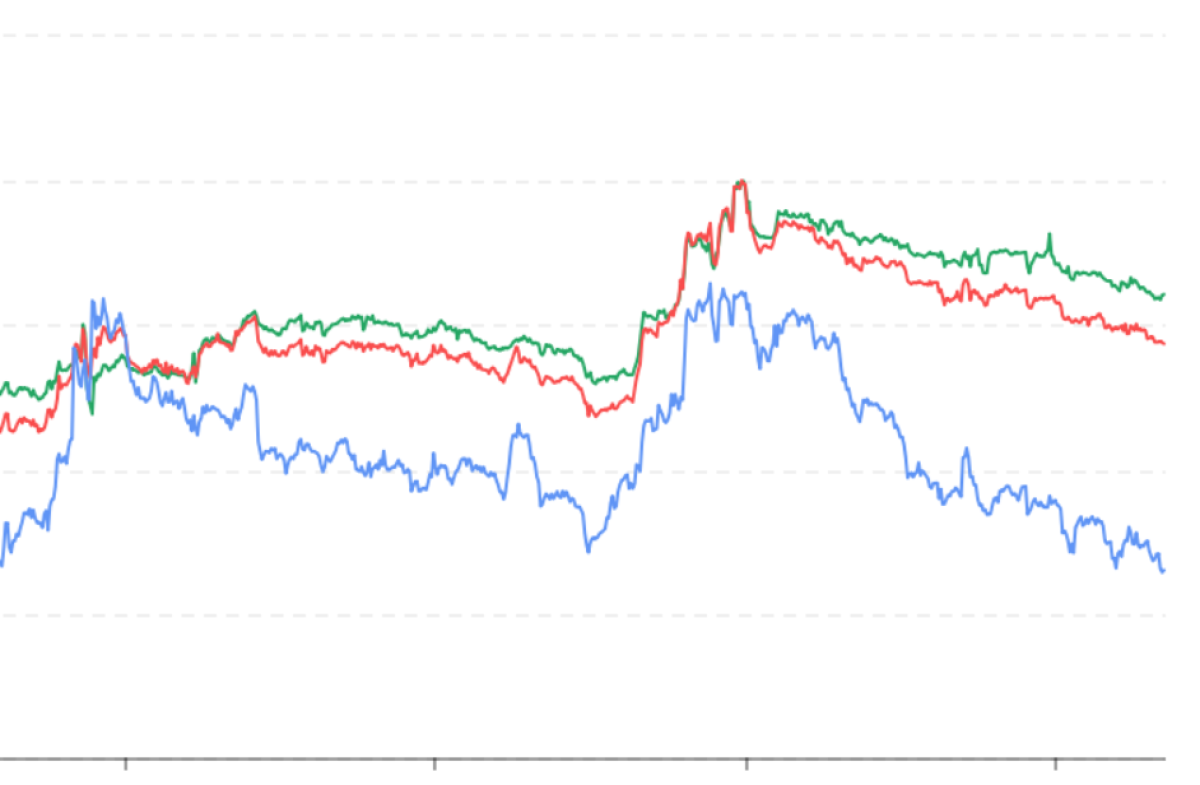Most Crypto Hedge Funds Aren’t Really Hedge Funds

Sina Nader is the founder of CryptoLux Capital, a private asset management firm. Daniel Cawrey is CEO of Pactum Capital, a crypto hedge fund, market maker and liquidity provider.
——————
If it walks like a VC, talks like a VC and acts like a VC, it’s probably not a hedge fund. And yet numerous crypto fund managers who’ve launched in the last few years have opted for the hedge fund model. Many of them probably should have gone with a venture capital structure.
Traditionally, hedge funds are measured on their performance over short, discrete periods of time. Months, quarters and years. This makes sense for established markets such as stocks. Price discovery is immediate – one can look up the price of Apple or Netflix pretty quickly.
This could also work for crypto funds, but only if they invest in assets that can be priced immediately (e.g., BTC, ETH, etc.). Otherwise, they may have been better off with a venture capital fund structure.
A Bad Setup
There is evidence that many crypto funds launched with a less-than-ideal structure: prominent crypto hedge funds are now launching venture funds. Some are doing this while blocking investors from pulling capital from the original hedge funds.
In addition, several funds are now using something called side pockets. A mechanism to make long-term, illiquid investments, side pockets cannot be properly valued by a market because there generally isn’t one. Many funds invest in project tokens or take equity stakes in crypto companies. However, these are investments in assets that cannot be valued precisely.
This is because most of these early crypto projects don’t trade freely on an open market. And so, a crypto hedge fund starts to look and feel more like a venture capital fund.

In early 2018 Polychain Capital set up a venture fund. Source: SEC
The issue with many crypto hedge funds is a natural preference that skews toward venture-style rather than hedge fund-style investment. They are more comfortable making long-term investments. And this is a fundamental flaw when you try to wrap it in a hedge fund structure that is short-term focused.
It creates a situation where the hedge fund manager may actually be right, but get penalized for it. They may invest in some crypto asset that becomes widely used for distributed file storage, for example. However, the investment gets destroyed on a yearly performance basis. This is because before the investment thesis was confirmed, the crypto asset fell off a cliff several times on its way to the top.
The Curious Case of ‘Crypto Hedge Fund’ Performance
Let’s take the case of ABC Crypto Fund (not its real name).
ABC is run by a team of highly accomplished technologists hailing from Ivy League schools. ABC finished 2018 down over 70 percent. The managers of ABC do not have any professional money management experience. It appears they have not entertained the possibility that their love for the tech they selected may not be aligned with current market sentiment. Otherwise, perhaps their current outcome would be different.
Or consider XYZ Crypto Fund (again, not its real name). XYZ is run by vocal technologists who publish their views with a tone and conviction so fervent that it would embarrass a religious extremist. Reading their thought pieces, one might think they had achieved union with the sacred energy permeating the universe. It feels like they are granting mere mortals a peek behind the curtain to see the inner workings of the cosmos, expressed in crypto terminology.
So what happened with XYZ? Lost about half of their investors’ money in 2018. The irony is that they even tout their fund’s similarity to VC funds— but alas, they elected to organize themselves as a hedge fund.
We wish managers like ABC and XYZ well and hope that they ultimately succeed. We are long-term believers in crypto and digital assets. But we also have to call a spade a spade.
In fairness, it may have been difficult to predict what the optimal structure should have been for crypto funds. Hindsight is 20/20. If we look at things dispassionately, we see many fund managers who espouse a venture-style view, attempting to hold investments in a hedge fund vehicle.
Said another way, they have a 5- or 10-year horizon (like a VC), but they’ve packaged their funds in a short-term delivery vehicle (like a hedge fund manager). Perhaps this is why, when asked about their 2018 performance, they often say that they’re “investing for the long term.” Also that the technological promise is so great, that being “distracted by returns in the short term” is a mistake.

In 2018, the typical crypto hedge fund was down 69.95 percent. Source: Eurekahedge.
In certain situations, a hedge fund model does make sense for crypto. Some of the best performing crypto funds of 2018 were structured as hedge funds. Rightly so—they employed specific strategies that make sense for a hedge fund structure. Suffice it to say the hedge model can work well. Some funds finished 2018 with double-digit positive returns even as some of the most prominent funds were slaughtered.
Rose-Colored Enthusiasm
Market forces will eventually sort things out after a requisite period of fairly intense pain. In the meantime, the time is right to bring a more realistic view to the crypto investment space.
Hope and enthusiasm for technology are great. But certain principles of finance have persisted throughout the centuries for good reason. Technology may well change the world for the better. However, economics and market forces cannot be out-coded and should certainly not be over-engineered.
The problem is one cannot have both. No one investing in tokens can reasonably say it is for the long term. If they truly had a long-term focus, these investors might as well invest in regular seed/series A rounds.
So, if you want to get into the game of picking the winning technologies in crypto, do yourself and your investors a favor. Call yourself by your proper name: A venture capitalist.
Special thanks to Ms. Birgitte Rasine for helping to edit this article.
Disclaimer: This article represents the views and opinions of the authors. It is not an offer to buy or sell securities. The information in this article is intended for informational purposes only and is not intended to constitute investment, financial, legal, tax or accounting advice. Past performance is not a guarantee of future results. Please consult an appropriate advisor and do your own research before making investment decisions.
Duck image via Shutterstock









